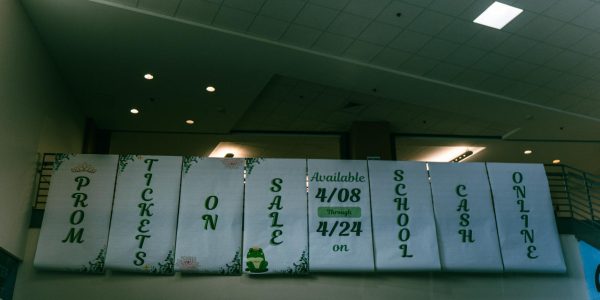Coming of Age Sets the Stage
So there I am, walking down the wooden staircase. My heels click with each step as my prom dress trails behind me. It’s “A Night To Remember” as High School Musical 3 so graciously put it. I’m excited to dance with my friends under beautiful lights and be swept off my feet by my partner.
But that movie moment never happened.

Teen coming-of-age movies set the stage for teens to feel like there are defined checkpoints in their lives. The first kiss, first date, prom, and that in order to feel like they have truly made the most of high school they have to have hit these different milestones, or else they’ve wasted their best years and will spend this day forward mourning their youth.
It has always been hard since the dawn of time to be a teenager. You still have to raise your hand and ask for permission to use the restroom in a classroom, but you’re also expected to decide what you want to be for the rest of your life. It’s no longer socially acceptable to eat applesauce and graham crackers as a whole meal without judgment, and yet we are making decisions that carry real consequences as possible outcomes. The limbo of teenage years has never bee n easy.
n easy.
A PCHS student said, “I like watching them because parts of them are an experience I wish I could have and it’s nice to live vicariously, but it always feels bittersweet because it’s an experience I haven’t had.”
These coming-of-age films tend to set unrealistic expectations of what high school should look and feel like. You’re supposed to fall in love, you’re supposed to have all these friends, you’re supposed to go out to parties, you’re supposed to go and drive off into the sunset with the people you’ve grown to know and love. So when you look at your empty camera roll, your wall barren of any pictures with friends, a keychain with no car keys, a postless Instagram, there’s a heartache from you feeling like you’re missing something.
Additional grievance teens have with coming-of-age movies is the inaccurate portrayal of what being a teenager is like. These movies set up boxes of sorts, as though lunch tables really exist in stereotypes like “Mean Girls.” At times the disagreements are simply for plot and not true reflections of what teenagers really fight about.
A Panther Creek student adds, “They often portray incorrect information about high school, as a lot of places don’t have the separation between, “jock,” and “nerd,” at all along with how they don’t show the true downsides to high school. The fights tend to be exaggerated as no actual friend would get upset at someone for not coming out, like what happened in Love, Simon. Personally, I feel they place unrealistic ideas about high school and the idea of growing up that when they aren’t fulfilled, we are left with a feeling of dissatisfaction from our high school careers.”

And then, on the silver screen, you see these stories unfold of teens having their moment. Where everything falls into place, their “aha” moment where they find themselves and their place in the world. When you feel lost, you crave that moment for yourself. But the problem is, that it isn’t real.
Endings are always bittersweet, but the black mirror of a movie screen as the story ends and the real world returns is a harsh wake-up for many teens. Another PCHS student shares this bittersweet feeling, “Coming of age movies hold such a huge place in my heart. I know they’re unrealistic and cheesy but they just feel so comforting. The idea that a bunch of kids can feel happy and content doing their own thing and not being the most well known or well-liked but just being comfortable in each other’s presence, or even the idea that things always turn out well in the end. I guess I enjoy them so much because I know it’ll end good and I’ll leave with a smile on my face and that’s something that I can’t guarantee will happen in my life.”







